- Home
- Kay Hooper
Illegal Possession Page 2
Illegal Possession Read online
Page 2
He also had to sneeze. Badly.
For an agonizing moment the watchman remained directly under them, his voice reaching them in the cold night air as he complained absently to his companion about lousy working conditions. It seemed to be an old refrain to the Doberman, because he paid little attention to his handler. Instead, he gave Dallas a very bad moment by sniffing around the bushes close to the house.
But then the guard had called the dog to heel, and they wandered on around the corner of the building. Dallas let himself breathe again, conscious of an overwhelming sense of…relief? He looked at Troy, wondering if the brush with certain discovery had shaken her composure.
She was smiling at him.
“The Lincoln Memorial,” she whispered. “Tomorrow—I mean, today—around two in the afternoon. Okay?”
Instead of replying, Dallas leaned farther out and let his gaze follow the rope upward to where it disappeared over the edge of the roof. Then he looked back at the most unusual cat burglar he was ever likely to encounter. “The Lincoln Memorial. At two,” he murmured, defeated.
“Leave the window open about an inch,” she instructed efficiently. “And the drapes as well. See you tomorrow.” Then she began to move up the rope hand over hand, her feet walking up the wall as easily as if it had been a floor.
Ten minutes later Dallas was back in his bedroom. He found himself staring at a rolled-up painting and a flashlight. Muttering to himself, he thrust both under his pillows, taking care not to press down on them when he tossed his robe aside and got into bed. He turned off the lamp on his nightstand and lay back, staring up into darkness. And he said only one more word, a word that seemed to his bewildered mind to sum up exactly how he felt about the entire situation.
“Hell.”
Some time later, and two miles away from the isolated house she’d left behind her, Troy climbed into a waiting helicopter. She strapped herself in and then donned headphones to talk to the pilot over the roar of the aircraft as it lifted off.
“Home, James,” she said cheerfully.
“I don’t see the painting.” It was a bear-rumble of a voice, exactly suited to the broad, stolid face of the middle-aged man at the controls.
Troy finally allowed the evening’s accumulated giggles to escape. “It’s being delivered, Jamie. Tomorrow at the Lincoln Memorial.”
A grunt was Jamie’s only response until the helicopter was well on its way to an airstrip near a fashionable suburb of Washington, D.C. When he did speak, the bear-rumble voice was amused, affectionate, and rueful. “You’ve found another stray, eh?”
Swallowing another giggle, Troy said casually, “I’d hardly call Dallas Cameron a stray. Would you?”
The helicopter dipped slightly at an ungentle jerk on the controls. Jamie’s incredulous eyes stabbed at her across the dimly lit cockpit. “Dallas Cameron?” he asked faintly.
“Uh-huh.”
“Scrupulously legal Dallas Cameron?”
“The very same.”
“The one they call ‘Ace’ to his face and ‘Genghis Khan’ behind his back?”
“Yep.”
“Oh, God.”
TWO
DALLAS CAMERON HAD lived in Washington for nearly two months now. He’d moved his main office from the heart of the Silicon Valley in California to D.C. slightly more than six months ago, and had spent those first few months commuting between the two offices. Now the West Coast office was in capable hands, and Dallas had chosen to remain in the East.
He’d discovered that he enjoyed the hectic pace of life in the nation’s capital, enjoyed being surrounded by historic sights and the multilingual, multinational people who lived and worked there. His house was out of the hands of decorators now and was beginning to feel like a home to him, and he’d already landed a rather substantial contract with a certain government department to supply electronic components for aircraft and spacecraft.
Now, sitting on the wide steps of the Lincoln Memorial, Dallas wondered dispassionately what the odds were against his being in the most policed city in the country with a stolen painting in his hands and not getting caught.
“Idiot,” he muttered to himself, watching his words assume a frosty shape in the cold air and then dropping his gaze to the cardboard tube held in his gloved hands. He asked himself if he was here because he’d believed Troy’s story about the painting, or simply because he wanted very badly to see her again, in broad daylight this time, without the sense of unreality he’d felt during last night’s meeting.
He knew the right answer.
Thoughtfully Dallas gazed out across the long pool separating the Lincoln Memorial and Washington Monument, his eyes following the string of Japanese cherry trees lining the Reflecting Pool. Their limbs were bare now, not yet ready to flower into the beautiful blossoms that would draw the eyes of tourists and natives alike. Lovely blossoms.
What color were her eyes? And her hair? How old was she? And how, for God’s sake, had she stumbled onto her extremely odd occupation? Did she ever, he wondered, steal paintings from their rightful owners?
Uneasily Dallas shifted slightly, the movement due not to the cold marble beneath him but to uncertain thoughts.
Although no one in his or her right mind would ever call Dallas naive, more than one of his less scrupulous business associates had accused him of being unworldly in certain views and judgments. To Dallas there was right and there was wrong, and a man took his stand on both. He could be utterly ruthless in business, but Dallas Cameron would never step outside the morality he’d established for himself. He didn’t break laws, and he didn’t break people; there were no footprints on other backs from Dallas’s climb to the top. Not many successful businessmen of thirty-six could claim that they had never hurt another human being through business practices, intentionally or not; Dallas, had he been asked, could say just that with absolute honesty.
There had been hurt that he realized he was responsible for at least in part in his personal—which was to say romantic—life. But those hurts had been unintentional and were, even now, deeply regretted. That was a major reason why Dallas, as the saying went, played the field. Dallas wanted no scalps dangling from his belt.
Still, a man could control certain aspects of his life, he believed. A man made choices. He decided whether or not to abuse alcohol and drugs. He chose a certain life-style. He obeyed laws or broke them. He treated people with honor or he didn’t. And sometimes he set himself a moral code he believed in, and he lived within it.
Troy. Whether her intentions sprang from the best or worst of motives, she nonetheless broke the law. Stealing, for whatever reason, was legally and morally wrong.
Dallas heard himself laugh shortly.
“That’s odd: you laughed, but you look as if you were contemplating throwing yourself into the Reflecting Pool.”
The voice was cheerful, a breath of spring on a winter day, and before Dallas could rise, she was sitting on the step beside him. He half turned, ridiculously eager to see Troy in the honest light of day. And his first thought was that the shadows of last night had cheated him. Badly.
She was smaller, for one thing; not much over five feet tall, he guessed. She was wearing a sheepskin jacket over a black turtleneck sweater and faded jeans, her small feet encased in scuffed desert boots. Her face was as delicately lovely as he remembered, her smooth ivory complexion untouched by freckles and radiating a rare translucence. Her large eyes were tilted at the outer ends in a catlike manner, and were green with gold flecks. Or…gold with green flecks. Odd; he wasn’t sure which.
Her brows, too, were slanted, giving her an uncanny air of mystery. Well-molded cheekbones, a delicately straight nose, a firm jaw and chin, a long slender neck—and a beautiful mouth curved with pure laughter. And she was a redhead.
Dallas didn’t doubt for a moment that Troy was a true redhead. Her vivid hair was the color of a flame, the color women and their hairdressers strove for in vain because it could never come out of
a bottle. Falling to just below her shoulder blades, her hair was styled simply; parted in the center, it was thick and slightly wavy, curling under at the ends. And it shone like burnished bronze, Dallas thought, looking vibrantly alive even in winter’s weak sunshine.
“Finished with the inventory?”
Dallas blinked and tried to concentrate enough to string a few words together that made reasonable sense. She wasn’t, he realized, either annoyed or disturbed by his scrutiny. If anything, she was simply amused. He looked into the strangely shifting colors of her eyes and found no conceit there, not even an awareness of her own beauty.
Impossible, he told himself. She couldn’t possibly not know….
“Sorry,” he muttered, unable to stop staring.
Troy leaned back against the step behind her, resting her weight on her elbow. “Did you know that this memorial is made of Colorado marble?” she asked conversationally. “It has thirty-six Doric columns, which represent the number of states in the Union when Lincoln was killed.”
She wore no rings, he noticed, and her hands were slender with long, clever fingers and unpolished nails that were neat ovals. “No,” he said finally. “I didn’t know that.”
Troy nodded toward the pool and the Washington Monument. “Did you know that the monument was dedicated in 1885 and designed by Robert Mills?”
“No.” Dallas frowned suddenly. “Why’re you making like a tour guide?”
Her green-gold/gold-green eyes laughed at him. “I had to say something. You sure weren’t holding up your end of the conversation.”
To his surprise and intense annoyance Dallas felt himself flushing for the first time in years. “Sorry,” he repeated stiffly.
Troy waved a hand in another of those oddly controlled yet expressive gestures. “Forget it. By the way—did your host rather casually ask you this morning if you’d ever tried to crack a safe?”
A smile tugging at his mouth, Dallas said, “You’re a smart lady, aren’t you? As a matter of fact, John did. I’ve never claimed to be an actor, but I must have shown the proper amount of bewildered surprise, since he dropped the subject immediately.”
“How’d you get the painting out?” Troy asked, her own smile showing even white teeth and one elusive dimple.
Fascinated by the dimple, Dallas almost forgot to answer. “Under my coat.” He handed her the cardboard tube suddenly. “Here—take the damn thing. I’ve been looking over my shoulder ever since I left John’s house this morning.”
“Thinking he’d come after you?” Troy asked dryly, accepting the painting.
“No,” Dallas told her. “Thinking about all the police in this city.”
“I would have confessed if they’d nabbed you,” she said solemnly.
Dallas wasn’t amused. He was, in fact, more disturbed than he could ever remember being in his life. He had a flashing vision of endless nights haunted by dreams of beautiful redheaded cat burglars, and winced. “Dammit,” he swore softly, yet roughly. “Why’d I have to walk in on you last night?”
The smile left her face but not her eyes; the smile there was tiny and uncomfortably perceptive. “Scrupulously legal Dallas Cameron,” she murmured.
He looked at her steadily. “Stealing is wrong.”
“Even for the right reasons?”
Disregarding that, Dallas said, “The rightful owner should have gone to the police. Then John would be behind bars, where he belongs.”
Troy shook her head slightly. “He did go to the police.” The smile had not left her eyes; it seemed to belong there as an innate, permanent thing. “But do you know how many art objects are stolen every year? The police don’t even know for sure, because private collectors of stolen paintings sometimes steal from each other, and the thefts, of course, go unreported. Thefts from museums and legitimate collectors number in the hundreds—even thousands—each year. Most are transported out of the countries they were stolen in. Interpol does its best, and its best is very, very good. But sometimes there are no clues, and the art objects never surface.”
Interested in spite of himself, Dallas asked, “Is that what happened in this case?”
“More or less.” Troy looked at him thoughtfully for a moment, then went on calmly. “When the collector got in touch with me, I called my contact at Interpol in Paris. He told me that they had no leads, either on the thief or the painting, and that they didn’t recognize the thief’s M.O.—modus operandi; I’m sure you recognize the term from cop and detective shows on television. Anyway, he told me to have at it. And wished me well.”
Dallas felt floored—and looked it. “You mean, he actually told you to try and steal the painting?”
“He told me to recover it if I could.” For the first time there was the faintest hint of steel beneath Troy’s easy manner. And the eyes that looked at Dallas, still containing their smile, were suddenly more green than gold. “Breaking as few laws as possible along the way.” The last was said with a touch of sarcasm.
Stubbornly, perhaps suicidally, Dallas kept digging. “You’re telling me that an officer of an international police organization gave you his approval to break into a private home and steal something?”
Troy watched him for a moment, as if deciding whether or not to respond to his question. One corner of her mouth was lifted in a crooked half-smile that was, any of her friends could have warned Dallas, a distant rumble of thunder before a violent storm. The tiny smile still glinted within her definitely green eyes. She sat up abruptly, holding the painting negligently in one hand. “Mr. Cameron—”
“Dallas,” he corrected automatically, and the look in her eyes then made him feel suddenly small and oddly in the wrong.
“Mr. Cameron,” she repeated with absolutely no inflection in her voice. “Like many redheads, I have hell’s own temper. I also believe that my work is necessary, and I enjoy it. And if that isn’t enough for you, then listen to this: You walked in last night on—in your own interpretation—a crime. If it’ll make you feel better, go to the police. But don’t preach at me. I’m a second-story woman; I can live with that. You don’t have to.”
Dallas looked away from the compelling green of her eyes. He saw a massively built man stumping determinedly up the steps to their right and several steps below them, the intense expression of a tourist on his broad face. But Dallas paid little attention to the man. Instead, he focused on the only part of her level speech that he could respond to. “Second-story woman?”
“Another term for cat burglar,” she said dryly.
“Shhhh!” he hissed as the tourist drew level with them, then moved on up the steps.
“Why not expose me to the world?” Troy asked him coolly. “This is your chance, Mr. Cameron. Look—there’s a cop. Will you flag him down, or shall I?”
Dallas turned his head to glare at her; oddly she was smiling again, and her eyes were shifting in color from green to gold. “Dammit,” Dallas muttered, feeling a furious rage because the expletive wasn’t strong enough.
“Well?” she taunted softly.
He reached out suddenly, one gloved hand curving around the back of her neck and pulling her toward him with a jerk that should have unbalanced her. But it didn’t. When his lips found hers, Dallas felt a moment of tension in her, a moment during which, he realized dimly, she was on the edge of exploding into action with the ferocity of a wildcat. Then she relaxed, her lips softening and warming beneath his. But she made no effort to touch him of her own volition.
Dallas kissed her as if he would pull something from deep within her and make it his own. He kissed her with the fury and gentleness of a man who sought something he couldn’t put a name to, something too powerful to fight and too elusive to understand. And when he finally drew back, his dark blue eyes were almost black, and his breath came harshly.
“Does that answer your question?” he rasped.
Troy leaned back slowly away from him, her own eyes dark gold and her breathing quick. She looked at him steadily as his hand
fell away from her neck, no pretense in her eyes of not understanding him. “It’s impossible,” she told him quietly, her voice husky. “You must see that. I’m a thief. For whatever reason, in your eyes I’m a thief. And I won’t stop being what I am.”
“Troy—”
“Thinking of reforming me?” In control again, her steady gaze was both rueful and ironical.
“That only happens in bad novels and worse movies. Why should I give up something I feel is right just because you—a virtual stranger—think it’s wrong?”
His eyes were restless, impatient. “Look, if you had a legitimate career, I wouldn’t think of asking you to give it up, but—”
“As it happens,” she interrupted calmly, “I do have a legitimate career. I develop and set up security systems for people. Isn’t that funny?”
“For God’s sake,” Dallas said blankly.
Troy watched his astonishment for a moment, then spoke again. “I don’t know exactly what you have in mind, Mr. Cameron—”
“Dallas!” he exploded. “Dammit to hell, call me Dallas!”
She compromised: she didn’t call him anything. “—but whatever you have in mind wouldn’t work. You won’t abandon your scruples, and I don’t have any.”
“Will you stop waving that at me like a banner of pride?” he demanded wrathfully. “It’s nothing to brag about.”
Troy sighed, beginning to be honestly amused. “You know, I’ve run head-on into some moral walls in my time, but yours rivals the Great Wall of China. And though it’d probably be quite interesting to knock a few blocks out of the thing, I just don’t have the patience. You’ll have to look somewhere else for your fling.”
“That wasn’t what I had in mind,” he told her irritably. “And what makes you so damn sure it’s my wall that needs to come tumbling down?”

 A Deadly Web
A Deadly Web Raven on the Wing
Raven on the Wing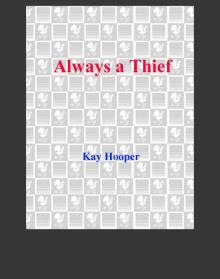 Always a Thief
Always a Thief Star-Crossed Lovers
Star-Crossed Lovers Blood Dreams
Blood Dreams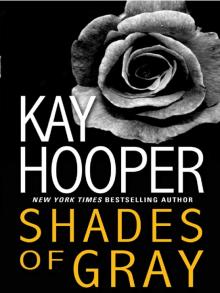 Shades of Gray
Shades of Gray Rebel Waltz
Rebel Waltz Chill of Fear
Chill of Fear Sleeping With Fear
Sleeping With Fear After Caroline
After Caroline Time After Time
Time After Time Haunting Rachel
Haunting Rachel Hunting Fear
Hunting Fear Out of the Shadows
Out of the Shadows Whisper of Evil
Whisper of Evil Blood Sins
Blood Sins Hiding in the Shadows
Hiding in the Shadows C.J.'s Fate C.J.'s Fate C.J.'s Fate
C.J.'s Fate C.J.'s Fate C.J.'s Fate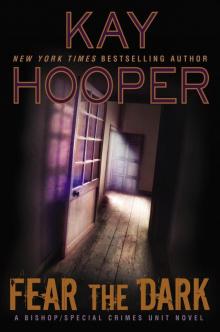 Fear the Dark
Fear the Dark Illegal Possession
Illegal Possession Stealing Shadows
Stealing Shadows If There Be Dragons
If There Be Dragons Once a Thief
Once a Thief In Serena's Web
In Serena's Web On Wings of Magic on Wings of Magic
On Wings of Magic on Wings of Magic Hostage
Hostage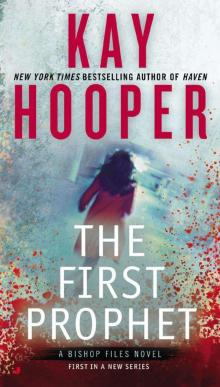 The First Prophet
The First Prophet Through the Looking Glass
Through the Looking Glass Golden Flames
Golden Flames Finding Laura
Finding Laura Haven
Haven The Haviland Touch
The Haviland Touch The Lady and the Lion
The Lady and the Lion Haunted
Haunted Velvet Ligntning
Velvet Ligntning Blood Ties
Blood Ties Adelaide, the Enchantress
Adelaide, the Enchantress The Matchmaker
The Matchmaker Golden Threads
Golden Threads The Haunting of Josie
The Haunting of Josie Rafferty's Wife
Rafferty's Wife Amanda
Amanda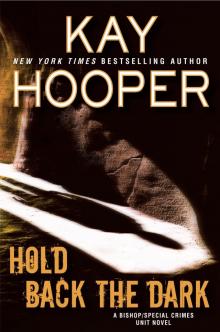 Hold Back the Dark
Hold Back the Dark Sense of Evil
Sense of Evil What Dreams May Come
What Dreams May Come Larger Than Life
Larger Than Life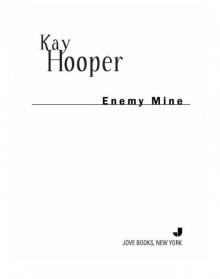 Enemy Mine
Enemy Mine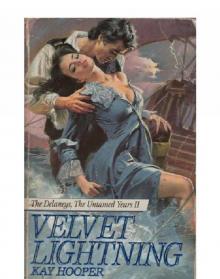 Velvet Lightning
Velvet Lightning The Fall of Lucas Kendrick
The Fall of Lucas Kendrick Aces High
Aces High Captain's Paradise: A Novel
Captain's Paradise: A Novel The Wizard of Seattle
The Wizard of Seattle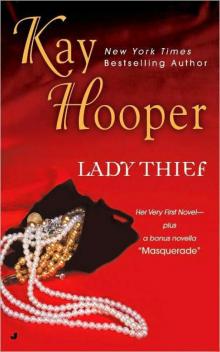 Lady Thief
Lady Thief Summer of the Unicorn
Summer of the Unicorn Outlaw Derek
Outlaw Derek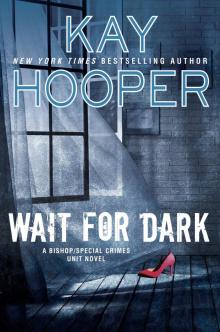 Wait for Dark
Wait for Dark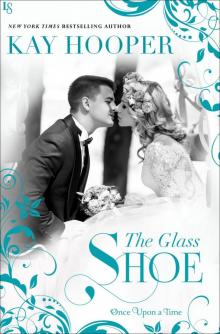 The Glass Shoe
The Glass Shoe It Takes a Thief
It Takes a Thief Zach's Law
Zach's Law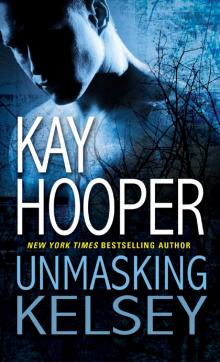 Unmasking Kelsey
Unmasking Kelsey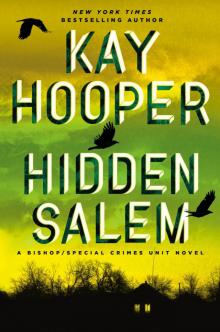 Hidden Salem
Hidden Salem